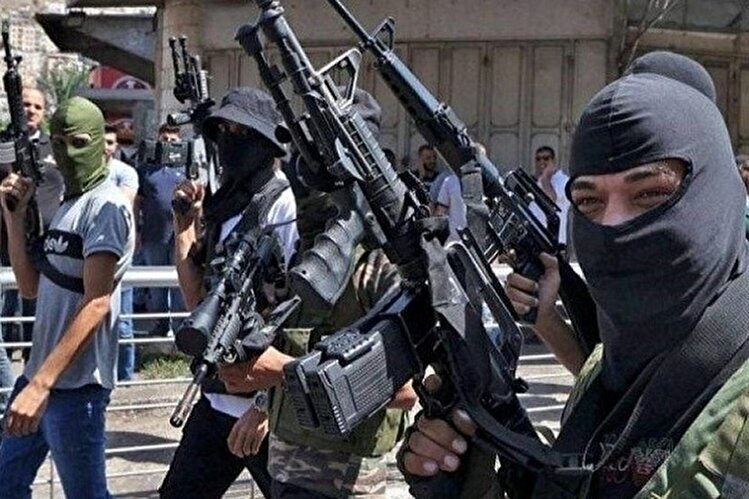A Security Challenge for the Zionist Regime
TEHRAN (Defapress) - Palestinian refugee camps have become centers of resistance and security challenges for the Zionist regime since the occupation of the West Bank and Gaza Strip in 1967. These camps, initially established as temporary shelters for Palestinian refugees, have gradually transformed into population hubs and centers of political and military activities.

This issue is one of the key dimensions of the tension between Palestinians and the Zionist regime. Palestinian camps, particularly in the West Bank, have become symbols of historical oppression and decades-long occupation. Despite their name, which suggests temporary residence, these camps have effectively become permanent settlements for Palestinian refugees who were displaced during the occupation of Palestine in 1948 (the Nakba) and the subsequent wars of 1967.
According to available documents, there are currently 22 camps in the West Bank and 8 camps in the Gaza Strip, housing a population of over one million people. Due to overcrowding, poor living conditions, and widespread unemployment, these camps have provided fertile ground for growing discontent and resistance activities against the Zionist occupiers.
In terms of "high population density," these areas face ongoing health, educational, and economic challenges due to overcrowding, lack of welfare services, and inadequate infrastructure. Additionally, "widespread unemployment" in the camps is another major issue for Palestinians, which causes poverty and economic deprivation.
In this context, the "security vacuum" in these camps can be highlighted as one of the challenges facing the Zionist regime. The regime is unable to maintain a permanent presence in these areas, and even when attempting to enter the camps, it faces resistance from Palestinian fighters or widespread protests from the resilient Palestinian population.
Another notable point is that Palestinian groups, particularly the Islamic Jihad movement and the Al-Aqsa Martyrs' Brigades, have bases in these camps. Given their popular support and the large number of fighters at their disposal, they can easily pressure Zionist elements and military forces, inflicting significant and painful blows on them.
However, alongside all these issues, the Zionist regime has pursued repressive policies and economic blockades to control and weaken these camps. Yet, these measures have not only failed to reduce tensions but have also increased anger and resistance among camp residents. As a result, these areas have become central hubs for organizing protests, Resistance operations, and even armed clashes.
On the other hand, the Zionist regime has consistently pursued harsh and ruthless policies to control these camps. These policies include "frequent military raids," "imposing blockades and movement restrictions," and "psychological and information warfare."
In the context of "frequent military raids," Zionist forces often enter the camps at night under the pretext of arresting Resistance fighters, demolishing homes, and detaining or assassinating Palestinians. In terms of "imposing blockades and movement restrictions," Zionist soldiers have disrupted transportation and placed daily pressure on residents by setting up numerous checkpoints at the entrances and exits of the camps.
However, a particularly important and sensitive aspect is the Zionist regime's approach to "psychological and information warfare." Historically, this illegitimate and occupying regime has used espionage networks to sow division among Palestinians.
Finally, analysts believe that the continuation of the Zionist regime's repressive policies toward Palestinian camps will not only fail to resolve the security crisis but will further erode the regime's internal security by exacerbating discontent and increasing Resistance activities. Therefore, revising security approaches and adopting more humane and just policies toward the residents of these camps could be an effective step toward reducing tensions and establishing peace and stability in the region.
